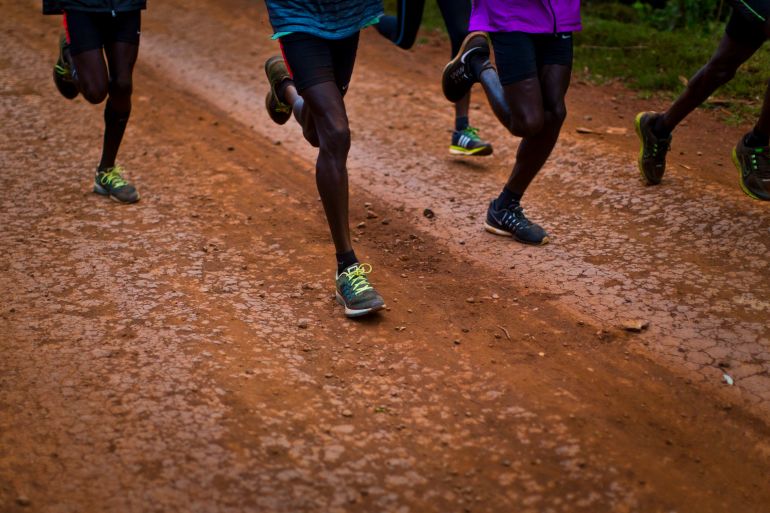Kenya faces threat of athletics ban amid doping crisis
Government commits to a ‘zero tolerance’ approach as it urges the world athletics governing body not to ban its athletes.

Kenya’s government is urging World Athletics not to ban the country from the sport, promising to step up its fight against the use of banned substances after a series of its athletes were suspended for doping.
The East African country is world-renowned for its middle and long-distance runners, who have won numerous gold medals at Olympic Games and World Championships and clocked up record times. Kenya ranked third in the athletics medal haul at the 2020 Tokyo Olympics.
Keep reading
list of 4 itemsBritish runner completes challenge to run length of Africa
Nagham Abu Samra: Palestine karate champion, victim of Israel’s war on Gaza
Funeral held for world marathon record holder Kelvin Kiptum
The country has faced accusations of widespread use of performance-enhancing drugs for years, but the athletics powerhouse has recently been buffeted by an increasing number of its runners testing positive. The country has faced accusations of widespread use of performance-enhancing drugs for years
The Kenyan sports ministry issued a statement on Thursday acknowledging the “doping crisis” and said Sports Minister Ababu Namwamba had written to World Athletics President Sebastian Coe and “urged” the governing body not to ban Kenya.
“Government is taking firm measures to protect and uphold the integrity of athletics,” the Kenyan sports ministry said. The Kenyan government was “treating it as a matter of top strategic national interest”, it said.
A ban would leave its athletes unable to compete globally, put its athletes’ plans for the 2024 Olympics in Paris at risk and badly damage the country’s reputation in the sport.
“We will not allow unethical individuals to ruin Kenya’s reputation through doping,” Namwamba said on Twitter on Friday. “We must defeat doping and its perpetrators.”
The government has told the governing body that it has committed an annual amount of $5m over the next five years for the fight against doping, the Daily Nation newspaper reported.
It also had a commitment of “zero tolerance” towards doping, Namwamba said.
‘Criminal elements’
World Athletics’s decision-making council is reportedly scheduled to meet in Rome next week, where Kenya is likely to be discussed.
Fifty-five Kenyan athletes are currently banned and eight provisionally suspended, according to the Athletics Integrity Unit (AIU), an independent body formed by World Athletics to combat doping in the sport.
Kenya is a Category A country under the Anti-Doping Rules of World Athletics, which means its athletes must undergo at least three no-notice, out-of-competition urine and blood tests before major events. There are currently seven Category A countries, including Belarus, Ethiopia and Ukraine.
Among the Kenyans caught using banned substances are 2021 Boston Marathon winner Diana Kipyokei and compatriot Betty Wilson Lempus, who were provisionally suspended last month for using triamcinolone acetonide.
In April, Kenya’s 2014 Commonwealth Games and Africa 10,000 metres champion Joyce Chepkirui was banned for four years for an Athlete Biological Passport discrepancy dating back to 2019.
Kenya’s doping problems have been documented for at least a decade and its national anti-doping programme, which was shown to be ineffective and was accused of being corrupt, was given a major overhaul in 2016 when the new Anti-Doping Agency of Kenya (ADAK) was established.
The national track federation has also been implicated in doping-related corruption.
Authorities have largely blamed the issues on small groups of what they refer to as “criminal elements” making money off selling banned performance-enhancing substances to Kenyan runners. Kenya has moved to make doping a criminal offence.